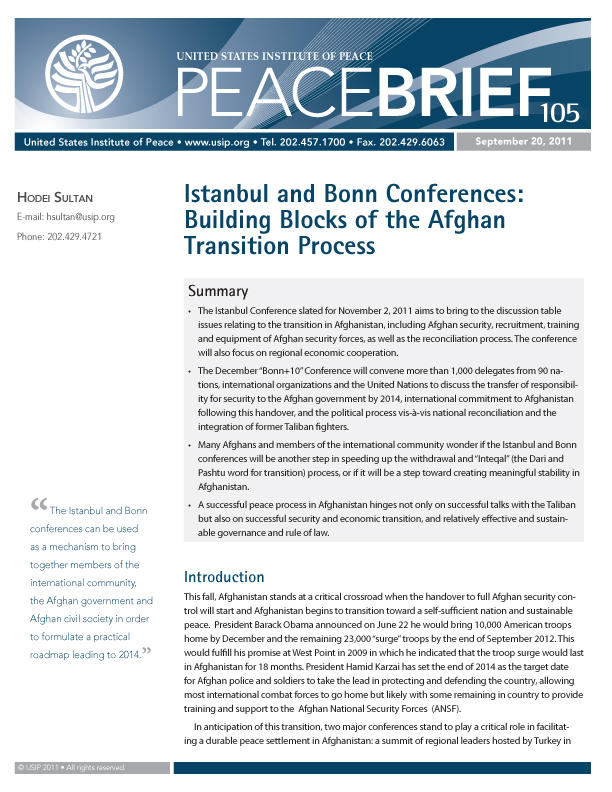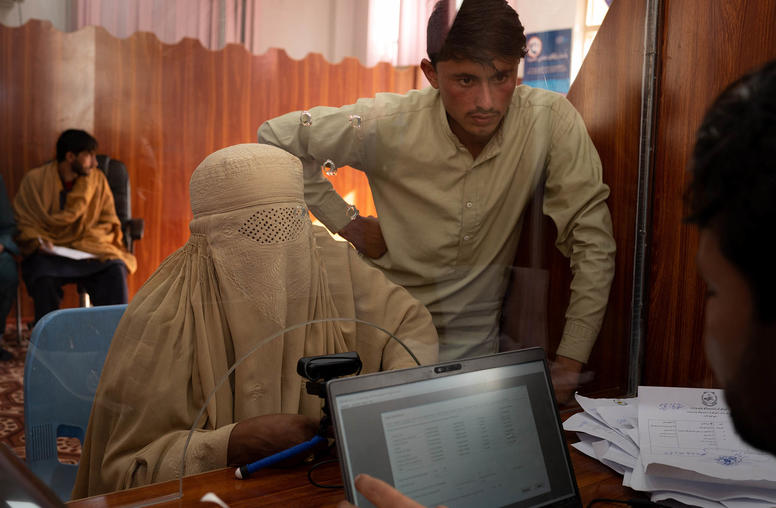Istanbul and Bonn Conferences: Building Blocks of the Afghan Transition Process
This brief highlights two upcoming major conferences that will play a critical role in the future of Afghanistan. Hodei Sultan, the author, is a program specialist for Afghanistan and Pakistan programs with USIP’s Center for Conflict Management.

Summary
- The Istanbul Conference slated for November 2, 2011 aims to bring to the discussion table issues relating to the transition in Afghanistan, including Afghan security, recruitment, training and equipment of Afghan security forces, as well as the reconciliation process. The conference will also focus on regional economic cooperation.
- The December “Bonn+10” Conference will convene more than 1,000 delegates from 90 nations, international organizations and the United Nations to discuss the transfer of responsibility for security to the Afghan government by 2014, international commitment to Afghanistan following this handover, and the political process vis-à-vis national reconciliation and the integration of former Taliban fighters.
- Many Afghans and members of the international community wonder if the Istanbul and Bonn conferences will be another step in speeding up the withdrawal and “Inteqal” (the Dari and Pashtu word for transition) process, or if it will be a step toward creating meaningful stability in Afghanistan.
- A successful peace process in Afghanistan hinges not only on successful talks with the Taliban but also on successful security and economic transition, and relatively effective and sustainable governance and rule of law.
About This Brief
This brief highlights two upcoming major conferences that will play a critical role in the future of Afghanistan. Hodei Sultan, the author, is a program specialist for Afghanistan and Pakistan programs with USIP’s Center for Conflict Management.



